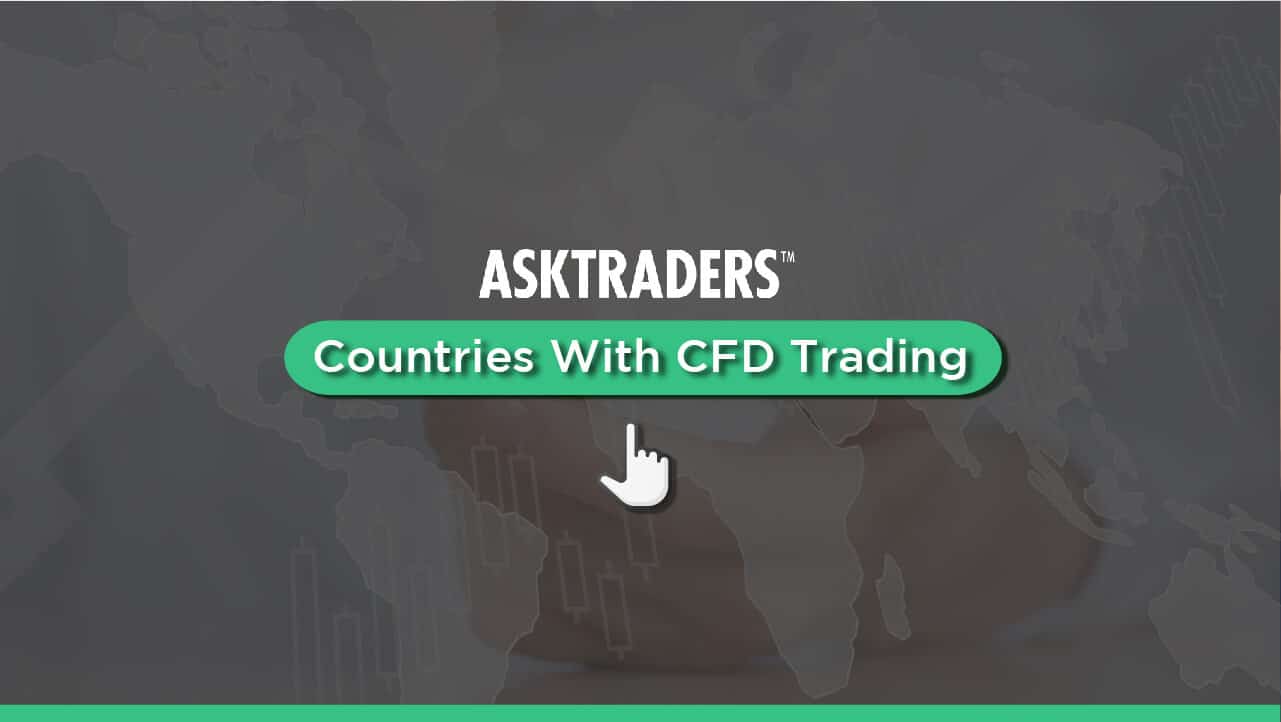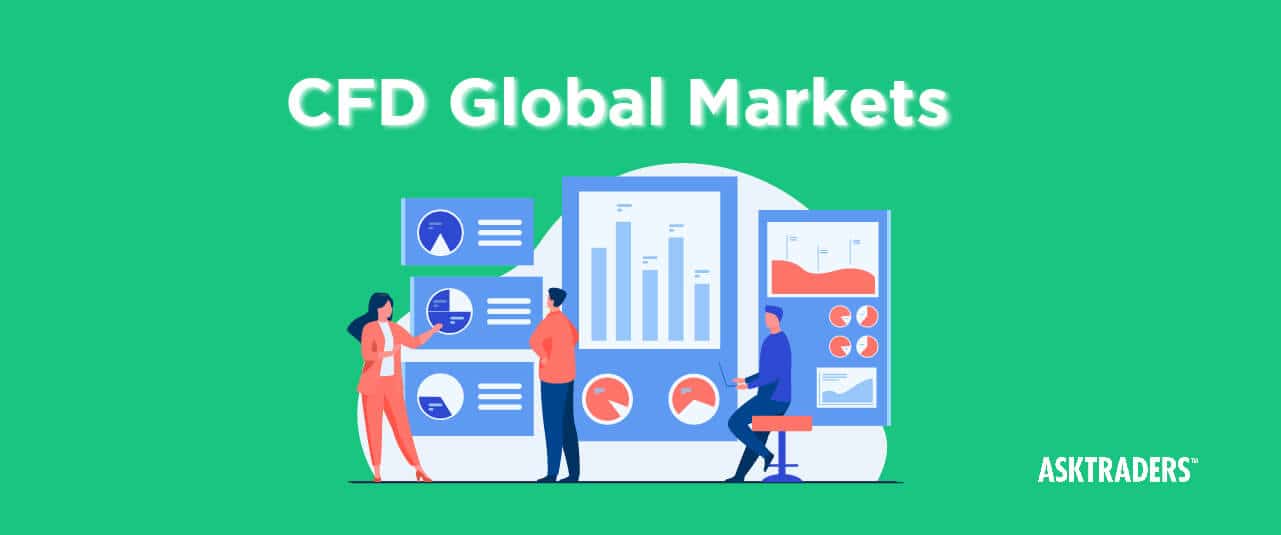Contract for difference is still a relatively new tool for trading on the markets, so there are some basic questions that many people ask about them and one of these is ‘which countries can a CFD trader operate in?'

As CFDs themselves can be used on global markets, the answer is really quite straightforward in a fundamental way. However, some countries have different legislation regarding various financial trading tools, and this is where things need a little more explanation.
List of the Countries Where the CFD Trader Can Operate in
CFDs are currently available in listed and so-called ‘over the counter' markets in many major trading countries, including
- The United Kingdom
- Germany
- Switzerland
- Singapore
- Japan
- Australia
- Spain
- France
- South Africa
- Canada
- New Zealand
- Sweden
- Norway
- Italy
- Thailand
- Denmark
- The Netherlands
- Chile
- Israel
- UAE
- Cyprus
Although contract for difference is not permitted in the United States because of restrictions by the USA Securities and Exchange Commission on OTC financial instruments, non-residents can trade using them.
Expansion into new markets continues with CFDs sometimes also being referred to as swaps, turbo certificates, waves and callable bull/bear contracts (CBBCs).
What is A Contract for Difference?
A contract for differences (CFD) is an arrangement made in financial derivatives trading where the differences in the settlement between the open and closing trade prices are cash-settled. CFD is an advanced trading strategy that is used by experienced traders and is not allowed in the United States.
CFDs allow traders to trade in the price movement of securities and derivatives. Derivatives are financial investments that are derived from an underlying asset. Essentially, CFDs are used by investors to make price bets as to whether the price of the underlying asset or security will rise or fall.
How Does CFD Trading Work?
There are four key concepts that you need to know before investing in CFD trading. There are spreads, contract sizes, durations, and profit or loss.
Spread
With CFD trading, you will always be offered two prices based on the value of the underlying instrument: the buy (bid) price and the sell (offer) price. The price to buy will always be higher than the current underlying value, and the selling price will always be lower. The difference between these prices is called the spread.
Contract Size
The contract sizes of CFD trading relies on the underlying assets. In derivatives trading, an underlying asset is the financial instrument represented by a derivative and is what gives a derivative its value.
For CFD shares, the contract size is usually representative of one share in the company you are trading. For example, to open a position that mimics buying 500 shares of Ambank, you will need to buy 500 Ambank CFD contracts
Durations
One of the major points to remember when trading CFDs is that they do not have an expiration date. A trade is closed only when placed in the opposite direction. A buy position of 500 gold contracts, for instance, would be closed by selling 500 gold contracts.
Profit and Loss
Profit and loss are easily calculated with a simple formula. The number of contracts you hold is multiplied by the difference in price. For a full calculation of the profit or loss from a trade, you will need to subtract any charges or fees you paid.
Profit & Loss = number of CFDs x (closing price – opening price)
Who are CFD Traders?

When they first came into play, CFDs were only really used by market makers in listed stocks as they were the only ones permitted to go short on securities. This is how CFDs became ‘over the counter' products for institutional traders, meaning that large corporations were the only ones able to take advantage of the revolutionary financial tool.
When hedge fund traders looking to take advantage of the ups and downs of markets adopted CFDs in the early 1990s, things moved up a gear, and later in the decade, private clients and the retail market were able to join in via the online trading arm of Gerrard & National Intercommodities. This innovative trading system, which allowed private clients to trade on the London Stock Exchange directly via the internet, was an innovation and the forerunner of the way in which many of today's CFD traders operate.
The CFD revolution was now truly underway with individual investors trading their own accounts, and small fund managers and institutions joining their larger cousins and enjoying the same benefits. The new level playing field was a big boost for CFD adoption and the ability to trade on leverage was something that many saw as a big attraction.
Best CFD Brokers
Pepperstone: Award-winning broker
TAKE A LOOKPlus500 | CFD provider: 79% of retail investor accounts lose money when trading CFDs with this provider
TAKE A LOOKeToro: 68% of retail CFD accounts lose money
TAKE A LOOKCity Index: Access more than 12000 markets
TAKE A LOOKIG: Offers spread betting
TAKE A LOOKAdvantages of Trading CFD
1. Flexibility and transparency
CFDs are popular with private investors of all sizes as the flexibility and transparency that is inherent in their use allows a highly personalized form of investment. In fact, over the past ten years, contracts for difference have been one of the fastest growing financial trading products which are available to private investors.
The myriad advantages that come with margin trading and the fact that profits can be made from assets that are both rising and falling in value over an extremely diverse range of markets are all factors which have played a part in the widespread adoption of CFDs.
2. Leverage & Cost
Leverage on CFD is much higher than traditional trading. While in traditional trading, traders have to commit 100 percent of their capital to a trade if they want to open a position. But in CFD, when you spend £50 to open a £1,000 position, the brokerage charges a small fee to cover the £950 difference.
Besides, CFD trading enables access to the underlying asset at a lower cost than buying the asset outright, ease of execution, and the ability to go long or short. Additionally, CFD brokers typically draw their earnings from daily percentages earned by financing the transaction.
3. Diversity
Another reason why CFD trading is a popular trend among investors is its diversity. You can use CFD to trade over 17,000 markets, including shares, indices, commodities, forex, cryptocurrencies, options and more.
Ideally, you can even trade some markets outside of trading hours, to make the most of company announcements. Just keep in mind that the market’s opening price may differ from its out-of-hours price.
CFD Trading Regulation

CFDs are an operationally efficient tax investment vehicle for many and trading CFDs is also a relatively simple process. Currently, there is little regulation that applies to the sector in many cases, and this has been another reason for the increase in popularity. Indeed, some industry observers predict that contract for difference trades will be the tool of choice for the majority of global traders at some point in the next ten years. Whether this forecast proves to be correct or not, it doesn't take away anything from the relatively rapid rise of this innovative financial product and the fact that so many traders across the world now make successful investments using the process.
In a global financial arena, which is tightly controlled, any area that offers less in the way of regulatory oversight will always mean that there is greater flexibility on offer for investors. One of the big ways that this has had an impact is by allowing CFD traders to operate across international borders, effectively giving access to global markets on a 24-hour basis. This has led to many new opportunities which mean more people than ever before now have the chance to get involved in trading on a wide range of markets.
CFD global markets

This global aspect is one of the driving forces behind the growth in popularity for contract for difference trading. As there are quite literally thousands of markets available in which to take a CFD position, specialized knowledge of stock markets, commodities exchanges or forex dealings doesn't need to be a pre-requisite for success.
This means that accessible strategies and methodologies, such as following news reports and using readily available technical data to create charts and watch trends, are now in the hands of DIY investors. Together with the ‘over the counter' nature of CFD brokerage, these elements have come together to elicit a truly transformational effect on the nature of trading in the markets on a worldwide basis.
Further Reading
- Compare the Best CFD Brokers in 2020
- Here are our latest trending stories
- How to Develop a CFD Trading Strategy









